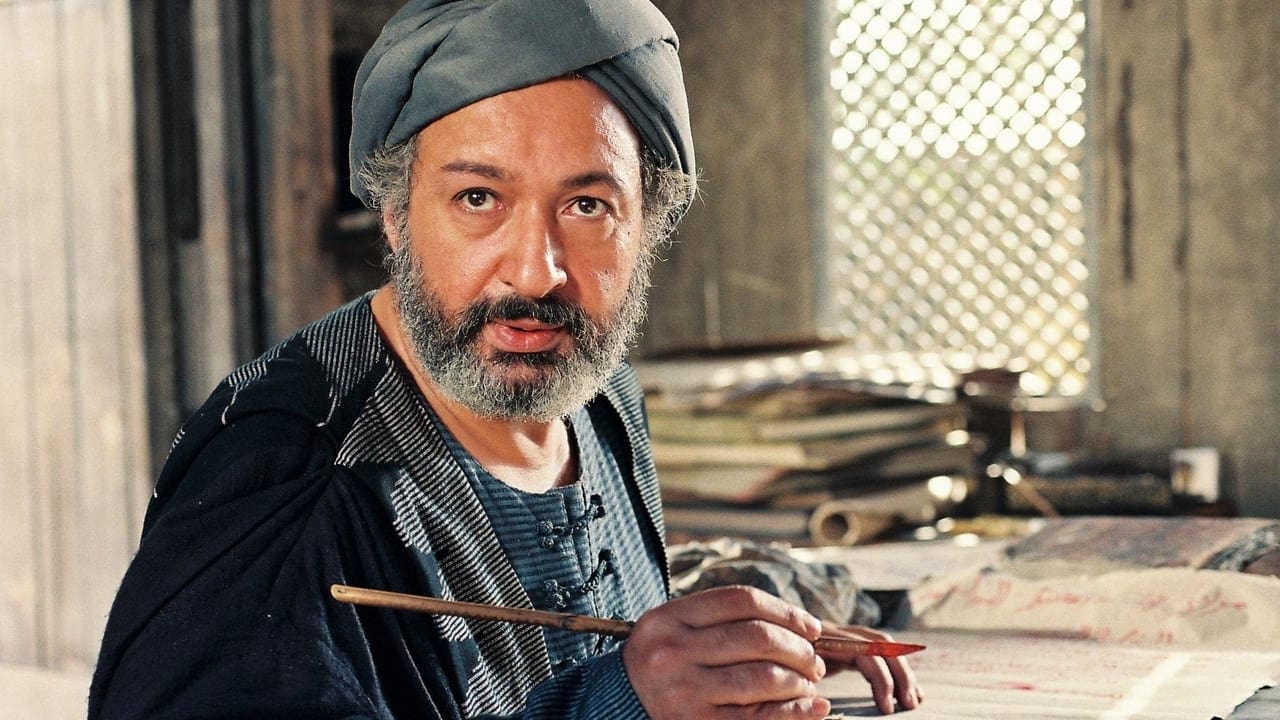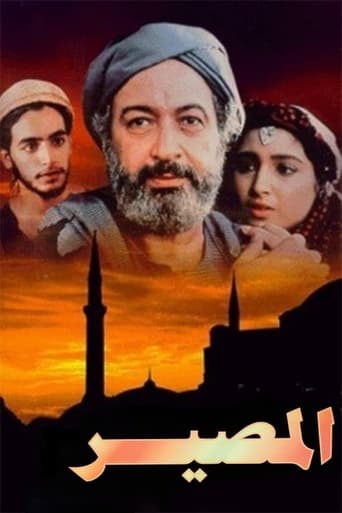




Good concept, poorly executed.
When a movie has you begging for it to end not even half way through it's pure crap. We've all seen this movie and this characters millions of times, nothing new in it. Don't waste your time.
View MoreThe biggest problem with this movie is it’s a little better than you think it might be, which somehow makes it worse. As in, it takes itself a bit too seriously, which makes most of the movie feel kind of dull.
View MoreIt's a good bad... and worth a popcorn matinée. While it's easy to lament what could have been...
View MoreEgyptian director Youssef Chahine biopic of Arab philosopher Averroes (who lived in Andalusia during the 1100s) is surprisingly compelling, with fine production values, including a lavish color cinematography (this was a co production with France that won awards at the Cannes film festival in 1997). Averroes (played by Nour el Sheriff) is seen in the movie, avant la lettre, as a wise champion of rationality and against fundamentalism. Aside having to fight the intrigue of fundamentalists, he has to do some optical experiments and also has to deal with family problems, a misguided caliph, and Christian troops eager to attack Andalusia. The movie also includes ridiculous but charming musical interludes reminiscent of Indian movies.
View MoreMr. Chahine is masterful and downright crafty in pushing forward his message for cosmopolitan rationality vs. parochial fanaticism: Starting from a telegraphed overview of historical events, ideological currents and characters from the two-century period (XI-XII) in Andalusia that saw a wave of North-African fundamentalist mercenary Berbers wrestle power away from the weakened remnants of the enlightened Umayyad dynasty, he made a deceivingly simple parable using old-time Hollywood formats and entertainment values à la `Thief of Baghdad.' Chahine is thus successfully addressing matters of dense philosophical and political import under the guise of an almost infantile entertainment. The plot, furthermore, echoes `Fahrenheit 451' and its overall ideological stance is reminiscent of A Man for All Seasons.' On the other hand, seeing its `musical' values as a bow to Hollywood is merely scratching at the surface, since it must be kept in mind that poetry in song the obsessive discipline of enlightened Islam was the most efficient vehicle for the birth and expansion of all values appropriated by Christian Western (read, European) civilization. Hence, the formal solution signifies much more than the surface. On the other hand, Chahine ties the past quite neatly -- through his storytelling and filmmaking craft -- with current world events and thought convolutions. For example, the stabbing of the bard character in Destiny couldn't be less than a painful fictionalization of the fundamentalist attack on the contemporary Egyptian novelist Mafouz. El Massir is an important piece of work, and I think everyone who is at all concerned or curious about the nature of the global forces at work today should take a long and detained look at it. This film carries a hefty punch and what's best -- you can barely feel it, as the masterful handling of the narrative, in terms of nothing but an entertaining parable, lets the dense message flow without any pretensions of `avant-garde' stylist truculence. M
View MoreA film which will probably find many emphatic spectators due to its many facettes: * You might like historic films - this one shows you live of Andalusia in the 12th century with rich costumes and great islamic buildings; * you might prefer deep content - this film offers insight in the philosophy of the great muslem thinker Averroes (Ibn-Rushed) and the question why people get seducted by sects; * you might be interested in action, love and happy-end - this film offers as a story the conspiracy against the caliph, and happily ends with two couples that found each other (though very sensitively shown, compared to occidental films); * you might generally be interested how other cultures do films - this is a great example of oriental (Egyptian) cinema, which is close enough to be understood be occidental people; * you might like to follow personal development of the characters shown in the film - this one gives you insight in the development of the caliph's two sons: from "take all easy" to "use your own head to think". *** This film can be highly recommended !!! ***
View MoreThis is a wonderful movie on tolerance. Chahine shows how the powers of dance, happiness and erudition oppose the dark forces of obscurantism and fanatism. Not only is the movie never rhetorically boring, but it is full of joy and music, making you feel like dancing ! This is definitely a masterpiece.
View More